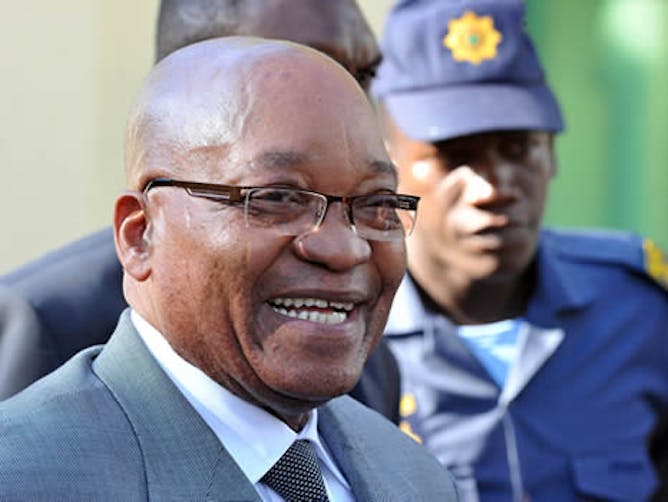|
A protracted battle to reinstate hundreds of corruption, money laundering and racketeering charges against South Africa’s President Jacob Zuma came to a head last week when the country’s Supreme Court backed a lower court’s finding that they should never have been set aside in the first place. Does this mean that Zuma will face trial? Not necessarily argues Pierre de Vos. The president and his lawyers will continue to try to stop the prosecution by submitting new arguments to the National Prosecuting Authority on why the charges should be dropped. And, if that
doesn’t work, they will try and convince the court that his prosecution must be stopped permanently because he won’t be given a fair trial. And against the
backdrop of increasing concerns about corruption in the country Steven Friedman quizzes Business Leadership South Africa’s CEO Bonang Mohale about the role of big business in tackling the problem.
Language lies at the heart of an ongoing battle by Anglophone Cameroonians to declare independence and establish their own state, Ambazonia. Verkijika G. Fanso explains how the source of the current tensions can be traced back to negotiations in the 1960s which left English-speaking Cameroonians out in the cold and French-speakers in control.
|

South Africa’s Supreme Court of Appeal has upheld a High Court Decision to reinstate almost 800 criminal charges against President Zuma.
GCIS
Pierre de Vos, University of Cape Town
The Supreme Court of Appeal judgment means that South Africa's president must be prosecuted - unless the national director of public prosecutions decides again to drop the charges against him.
|
Business + Economy
|
-
Steven Friedman, University of Johannesburg
Business Leadership South Africa has in the recent past assumed a stinging position against public sector corruption. Bonang Mohale explains the stance taken by the lobby group.
|
|
Politics + Society
|
-
Verkijika G. Fanso, University of Yaounde
Anglophones have long complained that their language and culture are marginalised. They say if this doesn't change, they must be granted independence.
|
|
Environment + Energy
|
-
Mark Moritz, The Ohio State University; Alice B. Kelly Pennaz, University of California, Berkeley; Mouadjamou Ahmadou; Paul Scholte, The Ohio State University
The idea that terror groups like Boko Haram fund their activities through ivory poaching in Africa is a compelling narrative. But it’s undermining wildlife conservation and human rights.
|
|
Arts + Culture
|
-
Stewart Maganga, Nelson Mandela University
Africa's broadcasters have a large role to play to ensure that country and western grows to its full potential on the continent.
|
|
From our international editions
|
-
Siobhán Wills, University of Ulster; Cahal McLaughlin, Queen's University Belfast; Ilionor Louis, Université d'Etat d'Haiti
On the eve of its departure from Haiti after a 13-year stabilization effort, the UN faces accusations that its troops used excessive force to fight gangs, killing innocent bystanders.
|
|